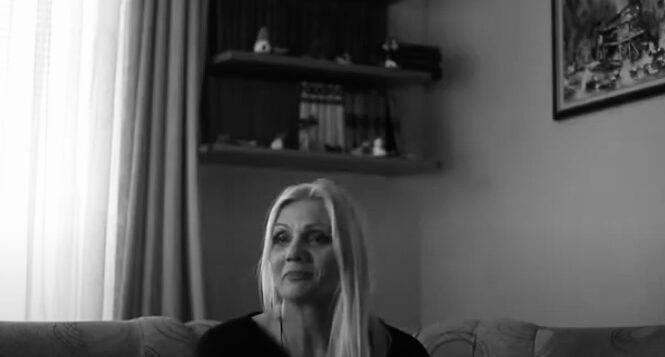O zamanlar öyleydik, söylemek gerekirse, şimdi farklı hikayeler var, ama eski Yugoslavya zamanında, komünizm zamanında…bayramlarımızı kutladık ve babam bir savaşçı olmasına ve büyük savaşlar sırasında savaşmasına rağmen, şey, biz, buradaki herkes, özellikle burada köyde, hepimiz bayramlarımızı kutluyorduk. Ailemizin bayramı Đurđevdan’dı ve tabii o zamanlar elimizde olan her şeyi hazırlıyorduk, imkanları olanlar da hazırlık yapıyordu çünkü bizler gerçekten varlıklı değildik ve o zaman önemli olanı yapmak zorunluydu, misafirlerimiz vardı. Bir iki, üç, çoğunlukla üç gün süren bayram günlerini, bu süre içinde bize gelen misafirleri ve bayram sırasında yaptığımız toplantıları çocuklar olarak dört gözle beklediğimizi biliyorum. İşte bu kadar ve Noel, Paskalyadan bahsetmiyorum bile, bugün kutladığımız gibi kutlandı ve muhtemelen geleneğimizin bir parçası olan ve gelecekte değer vereceğimiz bir şey bu geçmiş günler.
Gordana Đorić 1959’da Priştine’de doğdu. 1979 yılında Priştine Ekonomi Meslek Yüksek Okulu’nu bitirdi. 1990 yılına kadar Transjug Rijeka işletmesinde muhasebeci olarak çalıştı. 1990’dan 1999’a kadar kendi özel şirketini yönetti. Savaştan sonra, Bayan Đorić, kar amacı gütmeyen bir kuruluş olan Avenija’yı kurdu ve hala orada çalışmaya devam ediyor. Bayan Đorić üç çocuk annesidir ve Laplje Selo’da yaşamaktadır.
